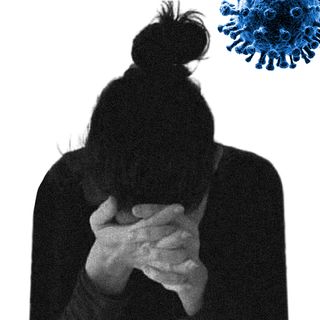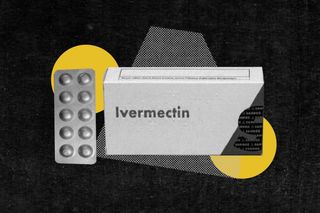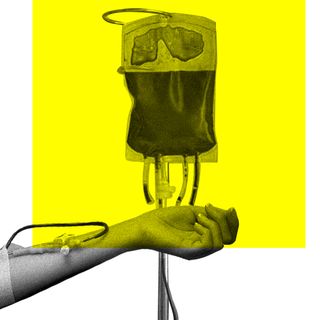
Why Are State Governments Using Ivermectin, an Antiparasitic Drug, To Prevent Covid19?
Endorsing the drug without sufficient research can fuel misinformation, black marketeering, and put lives in danger.

The drugs ivermectin and hydroxychloroquine (HCQ) have a touch more in common than being means to treat mosquito-borne tropical diseases like filaria and malaria. Both have become wildly popular in the race to find a preventive treatment for Covid19 — both without adequate evidence to back their efficacy.
While the discourse around HCQ has largely debunked its use in Covid19 treatment, ivermectin is still doing the rounds. India’s Union Ministry of Family and Health Welfare opted out of including ivermectin, an antiparasitic drug, in its official Clinical Management Protocol for Covid19 last year due to a lack of research around the drug’s efficacy in treating Covid19. Yet, the response across the country is disparate. Goa’s health ministry announced on Tuesday that everyone over the age of 18 will receive ivermectin as a preventative drug against Covid19. The Tamil Nadu government offers a three-day ivermectin prescription for those who are Covid19 positive. Uttar Pradesh uses ivermectin as part of the official treatment protocol to treat individuals with mild to moderate Covid19. Maharashtra and West Bengal are using ivermectin as a drug in an “off-label” manner (not currently approved) or experimental way.
These states have put their faith in the drug even though the World Health Organization (WHO), the U.S. Food and Drug Administration, the European Medicines Agency, and even Merck, the pharmaceutical company that makes ivermectin, state that there is no compelling evidence that merits the use of ivermectin as a preventative measure for Covid19. One has to ask — what is it about ivermectin that allows India’s state governments to put their faith in the drug?
The answer is not much, according to Dr. Lancelot Pinto, a pulmonologist at Hinduja Hospital, Mumbai. Dr. Pinto explains the popularity of the drug stems from small, scattered studies. “As far as I recall, one scientist in Australia did a lab study that proved ivermectin inhibited the multiplication of the virus. This was right after HCQ was going out of vogue, so suddenly everyone started talking about ivermectin [in medical circles]. Then a person in Bangladesh did a small study with a few people — not a randomized clinical trial — and that showed positive results. This paper went viral, and that was that.”
The trials Dr. Pinto mentions are not high quality, randomized, controlled trials — they either do not have human patients or do not have the right conditions, even though their research sounds promising. Many other trials, including WHO’s 16 ongoing trials investigating ivermectin’s role in treating or preventing Covid19, suffer similar problems due to weak study design, inconsistent drug use, and mixing multiple drugs with ivermectin.
Related on The Swaddle:
Medical Experts Say Plasma Therapy Is ‘Unnecessary’ for Covid19, Urge Govt To Review Guidelines
Even so, one has to make exceptions within unusual environments like the pandemic, in which doctors themselves recommend using experimental drugs to treatments stick. The natural assumption here would be that ivermectin may have some clear and unique capabilities that help in the fight against Covid19.
Unfortunately, that isn’t so either. The idea to use ivermectin goes back to the Australian researcher’s hypothesis that the drug could stem the replication of the novel coronavirus. Currently, the state governments have prescribed ivermectin in standard doses of 15mg, which makes them harmless, but also not very useful.
However, several follow-up studies have shown that accomplishing this would involve an extremely high dose of ivermectin, which the human body cannot handle. An individual usually takes 3-15mg of ivermectin for parasitic diseases like roundworm infection. In comparison, even more, than 120mg of ivermectin couldn’t stem viral replication of the novel coronavirus, according to research. Moreover, large doses of ivermectin can lead to severe side effects including immune suppression, abdominal pain, fever, raised heart rate, nausea, blood pressure problems, and even brain/nervous system issues that lead to loss of eyesight.
Where ivermectin may work, according to research, is as an anti-inflammatory agent for severe cases of Covid19. But similar results have been accomplished using dexamethasone — a steroid used to reduce inflammation, which is equally cheap and effective.
Related on The Swaddle:
The allegedly strongest and most controversial bit of evidence in favor of ivermectin was a research paper published in the American Journal of Therapeutics by a group of medical experts called the Front Line Covid19 Critical Care Alliance (FLCCC). However, the study has been removed from the site for unknown reasons as of now; previously, a pre-print of the study was also removed from publication Frontiers in Pharmacology. The journal later put out a statement saying, “In our view, this paper does not offer an objective nor balanced scientific contribution to the evaluation of ivermectin as a potential treatment for Covid19. Frontiers takes no position on the efficacy of ivermectin as a treatment of patients with Covid19, however, we do take a very firm stance against unbalanced or unsupported scientific conclusions.”
The chief of FLCCC alleged censorship in retaliation to the removal of the article. Several individuals on the internet further put forth conspiracy theories that ivermectin wasn’t being utilized as it brought in no profit to pharmaceutical companies. Dr. Pinto confirms that this is a common conspiracy theory in India too, especially when it comes to adding drugs to treatment protocols, “The common argument very often when it comes to things like ivermectin, doxycycline and all that is, ‘Oh, they’re so cheap so pharma is not making money. Therefore it’s not in the guidelines.’ Everyone has their own story.”
While research on ivermectin’s efficacy against Covid19 is still underway, the Goa government’s recent decision — along with other states — to endorse the use of ivermectin as a preventative drug can have serious implications. It pushes misinformation about a drug that does not have enough research to back it, and may create an environment that leads to dangerous experimentation due to ivermectin’s easy availability and inexpensive cost. What it may also lead to is a lack of effort put into physical distancing, as people will be convinced that they’re taking a preventative drug that makes them safe. Further, the union government is equally responsible for not clarifying guidelines and allowing the endorsement of ivermectin, even though the center’s own treatment protocol opted out of it.
Most importantly, the free usage of ivermectin as a preventative drug also indicates a lack of ethics. “The WHO has clearly said that if you want to use ivermectin you have to use it in the context of a trial; you cannot use it as patient care,” Dr. Pinto says, “And that’s the thing. If a doctor is using something that is not approved, then the doctor should be asking the patient to consent as being part of a trial because the doctor is really conducting research.” Dr. Pinto calls this a “therapeutic misconception,” where “a patient is being experimented upon, but the patient thinks that actually is going to be being treated. That’s not right. Research involves consent.”
Arguably, the only thing that offers unequivocal preventative protection against Covid19 is the vaccine — which, like other things, is in short supply.
Aditi Murti is a culture writer at The Swaddle. Previously, she worked as a freelance journalist focused on gender and cities. Find her on social media @aditimurti.
Related


Medical Experts Say Plasma Therapy Is ‘Unnecessary’ for Covid19, Urge Govt To Review Guidelines
